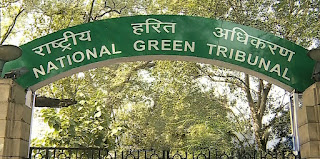Days before Holi, one can see heaps of wood and other combustible materials stacked on the roadsides and vacant lands of Dwarka. This is because Dwarka residents are preparing for the tradition of Holika Dahan, or burning of Holika that is observed on the eve of Holi.
However, not everyone is looking forward to the ritual. The environmentally conscious residents of the sub-city are debating the repercussions of this tradition on social media groups.
Suman Malik, a resident of Sector 6, said, “Burning always results in toxic gasses like carbon dioxide and carbon monoxide. The fumes release small particles into the air that causes asthma and skin allergies. To make matters worse, in cities people burn ply boards in the name of Holika. These contain chemicals that release dangerous gases. I strongly oppose burning anything in the name of Holika. We should change our customs according to the need of the times and the environment.”
Anandita Kar Roy a member of the Green Circle Group of Dwarka added, “We should not celebrate the festival by going against nature.”
Holika Dahan or burning of Holika signifies the triumph of good over evil. According to Hindu mythology, Holika was the sister of demon king Hiranyakashipu who had attempted several times to take the life of his pious god-fearing son Prahlad. During one such attempt, Hiranyakashyapu had asked Holika to sit on a bonfire with Prahlad on her lap. The king knew that Holika had a special cloak garment that prevented her from being harmed by fire. However, legend says that as the fire roared, the garment flew from Holika and covered Prahlad. Holika burnt to death while Prahlad a devotee of Lord Vishnu remained unharmed.
The residential societies of Dwarka look at Holika Dahan as a community activity. Therefore with growing urbanisation of the subcity the numbers of Holika pyres too are multiplying.
Diwan Singh, convener of Natural Heritage First, an organisation working on environment conservation said, “Holika Dahan is part of our culture and I do not oppose it. However, I oppose the increasing number of pyres. People should come together at one place and observe this ritual.” Diwan also added, “The appalling pollution levels in the environment can largely be attributed to the government. The government is blindly pursuing its mandate of urbanization with no regard for the environment.”
There is a larger section of the community which is in favour of Holika Dahan. They feel that if development policies start incorporating environmental concerns then traditions like these do not have to be questioned at all.



































